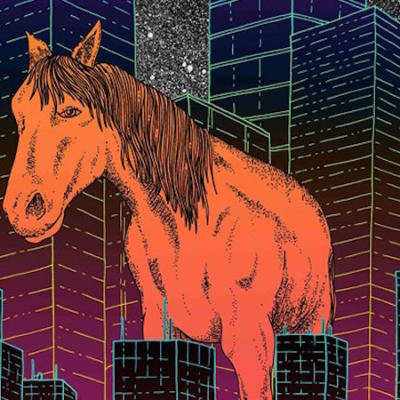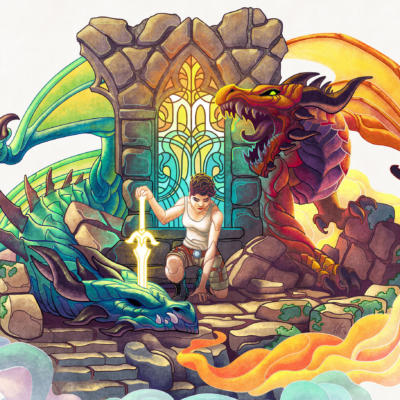Cass McCombs is one of modern music's quintessential storytellers, adept at both sprawling concept records, and more insular and self-contained tales. Hidden in his re-appropriation of the sound of 1970's soft rock - the ringing guitars, billowing keys, and muted drums - is a wry and somewhat macabre sense of humour. This is just as apparent on his eighth studio album Mangy Love, except perhaps with less humour.
Never has onomatopoeia sounded as downcast as it does on "Bum Bum Bum," which opens the album. "How long until this river of blood congeals?" McCombs asks, punctuating the song with flippant repetitions of the song's title. McCombs performs a sly reversal on the trope of rock glossolalia - from "A wop bop a loo bop" to "de do do do, de da da da" - and instead of unnameable ecstasy, it represents passive hopelessness in the face of an unkind and world. The eddies of reverb-laden guitar and droplets of hand drums only increase the sensation of drowning.
McCombs' work has been harrowing in the past, particularly his still-stunning 2011 record WITS END, but it has never been as direct in its despair and even aggressive as it is here. The jagged "Rancid Girl" forms a callous with its nagging electric guitar and unrelenting backbeat as McCombs inhabits a sneering, chauvinistic character. Sonically it is brethren to other songs on the record that toy with rhythmic funk, in particular "In a Chinese Alley" and "Switch," which are presented with a fascinating, strangely out-of-focus production style.
There are also delicate and even beautiful moments on the record, but all of them are suffused by an oddly muted melancholy. "Laughter is the Best Medicine," is darkly sardonic, and made even more so by nylon-stringed guitar, saxophone and mouth harp; It is reminiscent of Steely Dan at their mid-70's peak. Another highlight in this mode is first single "Opposite House," a surreal portrait of emotional cabin fever encircled in lithe, watery guitar, foggy mellotron and ghostly vocals from singer-songwriter Angel Olsen.
Arguably Mangy Love suffers because there is no real point at which the album comes together as a cohesive whole. The melodically rich, Greek mythology-inspired "Medusa's Outhouse," is impressive, but in its ambiguity it sits uncomfortably alongside more polemical pieces like the aforementioned "Bum Bum Bum," and the righteous "Run Sister Run," which points out the ludicrousness of denying woman control of their reproductive rights over feverish chase-scene drums.
At an hour in length, though, Mangy Love never really runs out of steam. McCombs' music hasn't been known to change much between releases, but he is still capable of surprising, as with the menacing drum machine and piercing operatic accompaniment of "It," or the rangy, almost theatrical closer "I'm a Shoe." Mangy Love finds Cass McCombs descending to some of the very lowest depths he's willing to plumb, and if you're prepared to accompany him you will discover a record replete with masterful songwriting and fascinating juxtaposition.
Mangy Love is out on CD, vinyl and digital formats via Anti- Records on Friday August 26th. Cass McCombs is playing at Meredith Music Festival in December, and while he's in Australia he'll be stopping by Sydney for a gig at Newtown Social Club on Tuesday December 6th.





